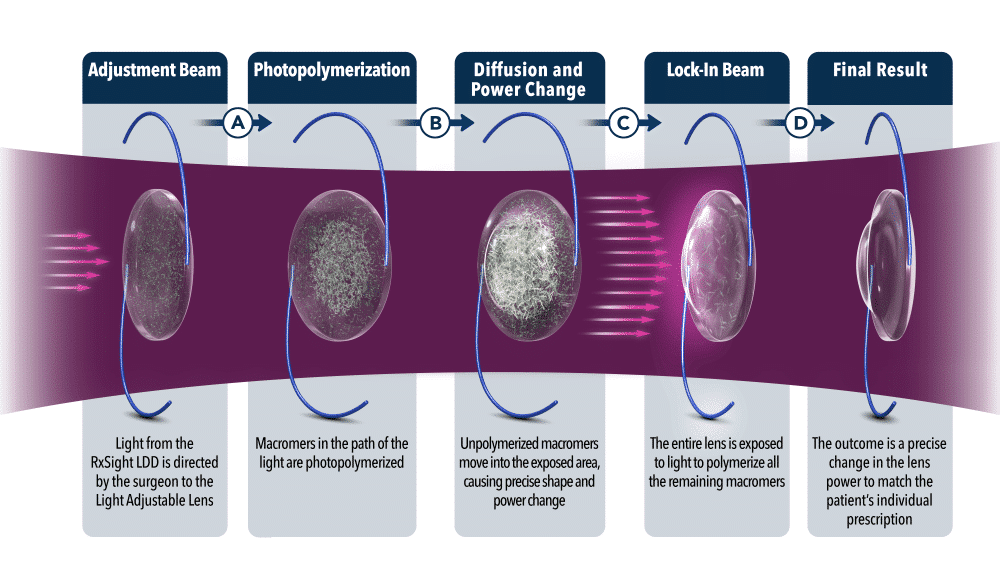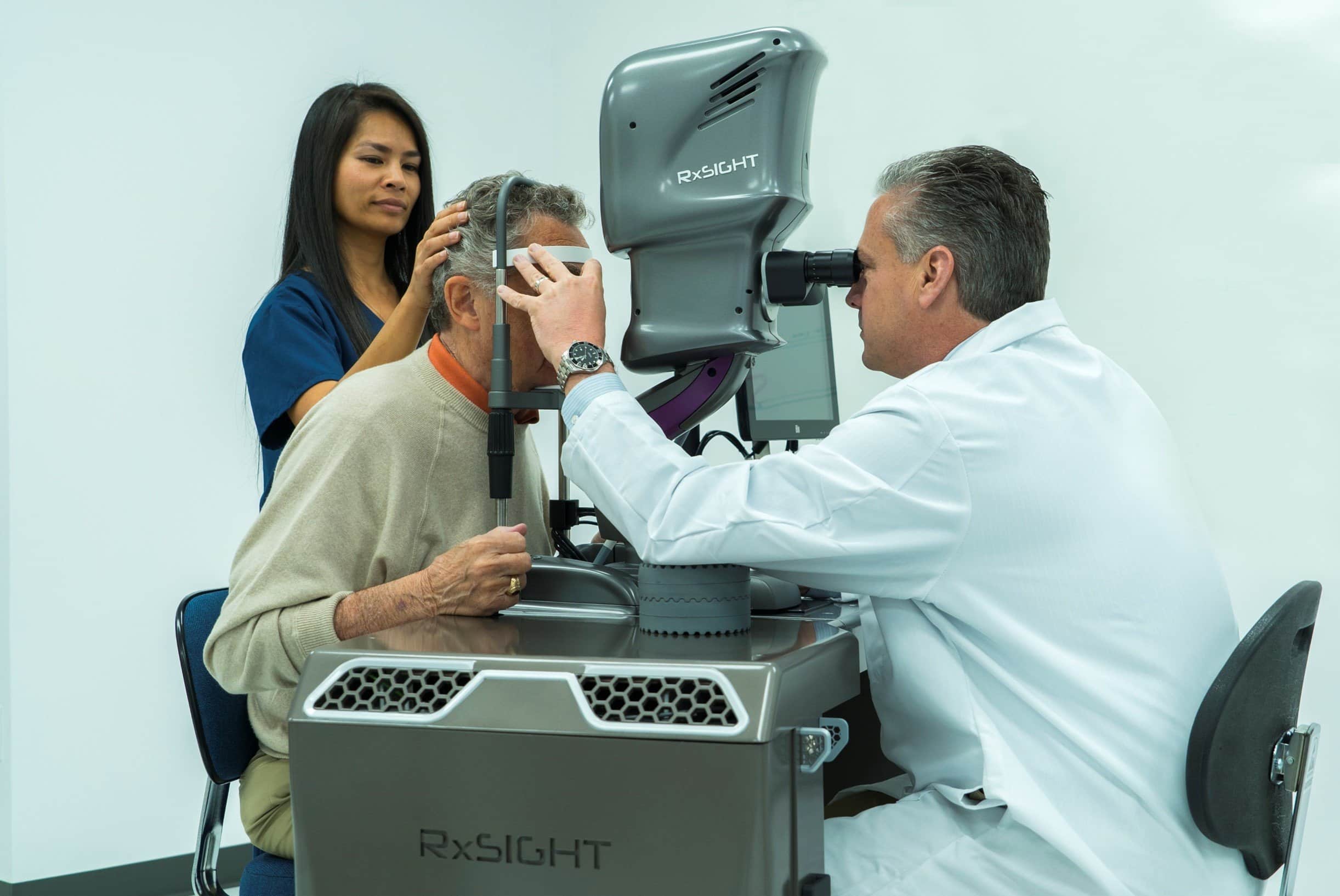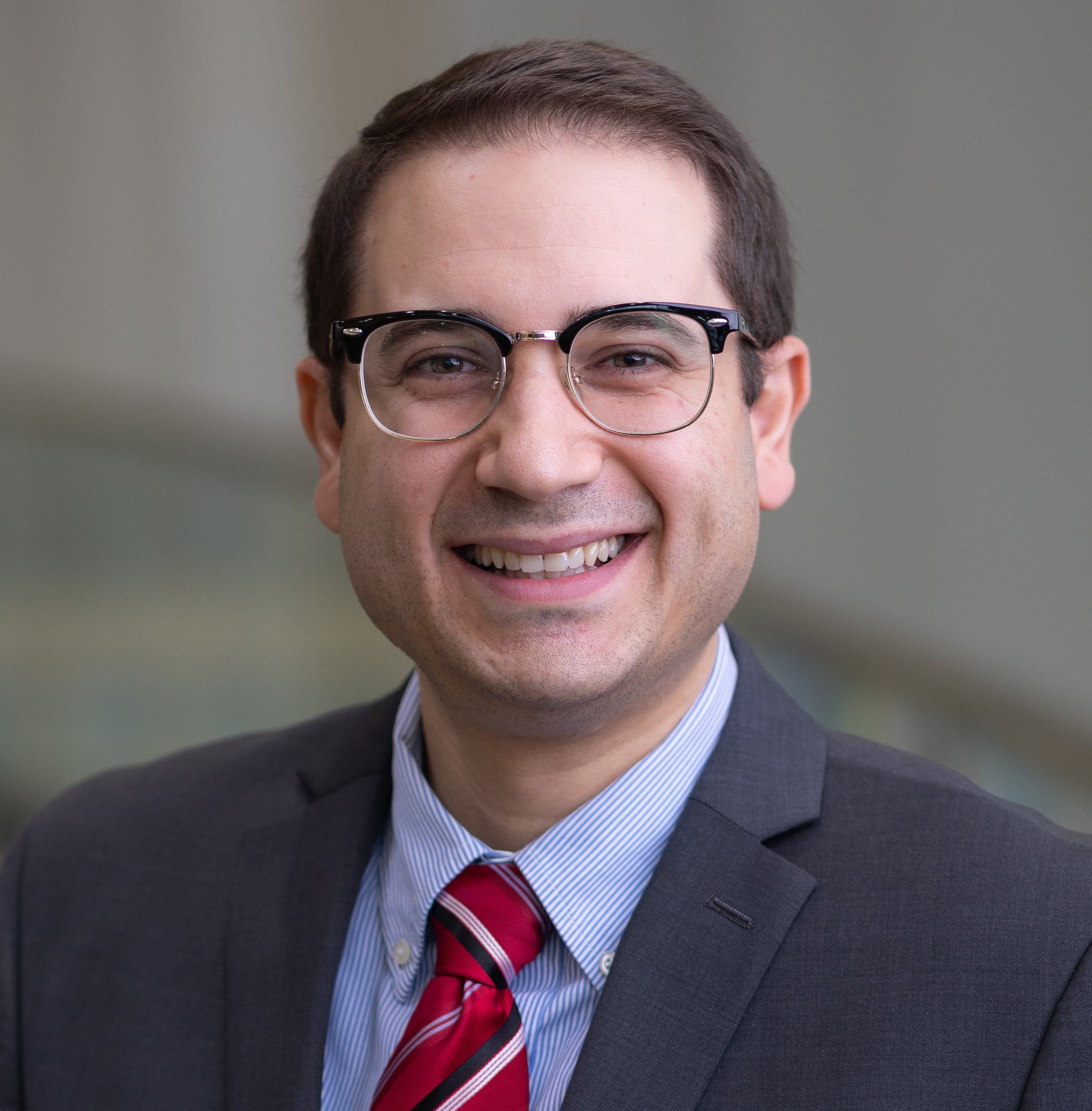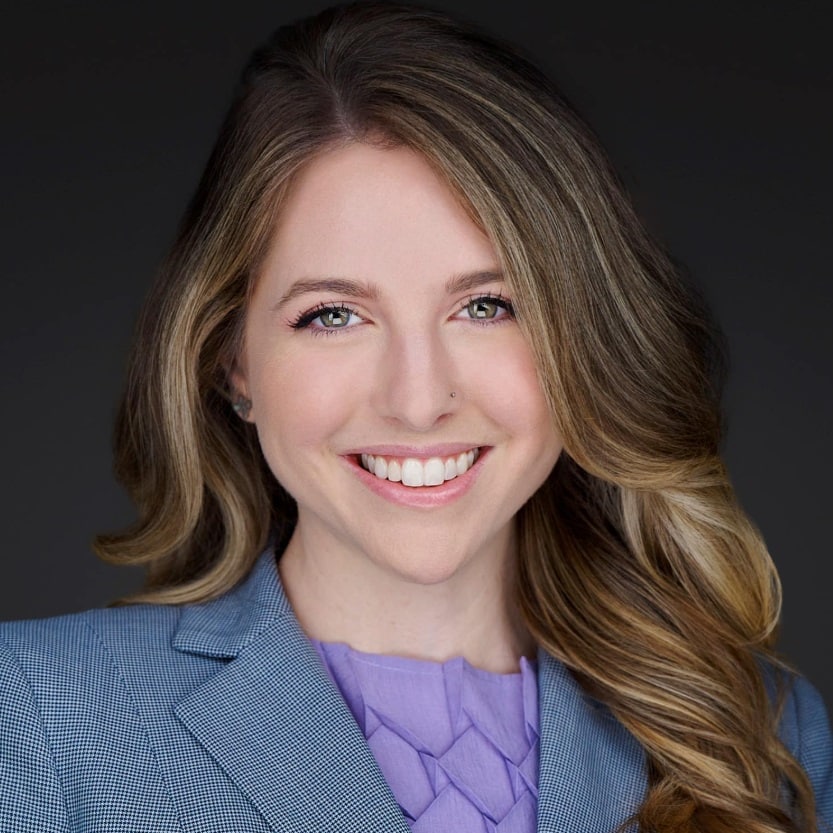Why Choose RxSight Light Adjustable Lens
Personalized Vision
Take charge of your post-surgery vision clarity with unparalleled, painless customization options.
Non-Invasive Adjustments
Enjoy quick and painless light treatments for vision optimization.
Superior Outcomes
Achieve vision results unmatched by traditional, non-adjustable IOLs.
Real-time Preview
See and approve adjustments to your vision during the process.
The Light Adjustable Lens (LAL) is a type of lens implant that provides your cataract surgeon with the ability to fine tune and customize your optical prescription in order to achieve the best possible results-even after the lens has been placed in the eye! This “adjustability” is achieved through a lens material being able to be “photopolymerized” after your surgery in order to adjust the lens implant shape and prescription.


- Taking medications that make you more sensitive to UV light
- You’re on medication that may be harmful to your retina
- A history of eye infections, herpes, or uncontrollable eye movements, known as nystagmus
- You can’t follow the schedule for LDD light treatments
- You are unable to wear the UV-protective glasses after having cataract surgery
Meet Our Medical Team

Sydney L. Tyson, M.D., M.P.H.
Sydney L. Tyson, M.D., M.P.H. is an Ophthalmologist, Cataract & LASIK Surgeon and is the Founder of Eye Associates & SurgiCenter of Vineland which serves the medical, laser & surgery eyecare needs of patients throughout southern NJ and greater Philadelphia, PA.

Nirupa Cuttler, M.D.
Nirupa Cuttler, M.D. is an Ophthalmologist & Cataract Surgeon at Eye Associates & SurgiCenter of Vineland which serves the medical, laser & surgery eye care needs of patients throughout southern NJ and greater Philadelphia, PA.

Andrew Ines, M.D.
Andrew Ines, M.D. is an Ophthalmologist, Cataract Surgeon & Glaucoma Specialist at Eye Associates & Surgicenter of Vineland which serves the medical, laser & surgery eye care needs of patients throughout southern NJ and greater Philadelphia, PA.

Sarah G. Bonaffini, D.O.
Dr. Bonaffini obtained her Bachelor of Science degree, majoring in Neuroscience with a minor in Chemistry and Classics, from the University of Pittsburgh. She then earned her medical degree from LECOM Bradenton in Florida. Dr. Bonaffini completed her Ophthalmology residency at the Philadelphia College of Osteopathic Medicine, where she served as the Chief Resident.
